A Palestinian and North American Indigenous Conversation on Land Theologies
An INFEMIT community conversation
As we prepare for our next Stott-Bediako Forum on Transformation Revisited: Mission and Gospel Imagination, we are holding conversations with members of the INFEMIT Community to explore some of the related themes. In this podcast, we talk with Shadia Qubti about the how to nurture a decolonial imagination and the challenges faced when seeking to move beyond the limits of Western academic methodologies and engage with one another as Majority World scholars around our own ideas and on our own terms.
Listen to the conversation with Shadia, or read the excerpt below.
Click to listen or find the episode on your preferred podcast platform here.
Conversation Excerpt
Tori: In the process of your thesis, what did your research reveal to you about our gospel imaginations?
Shadia: I think imagination is our ability to read into our context, but also outside of context. A lot of the focus has been on interpretation and […] primarily decolonial methodology puts specialty at the center, right? Context is important. Academic site as a space is important. The location of the author is important. And also, I think geographical proximity or our engagement with one another is important.
And so our ability to imagine doesn’t come in a vacuum, right? We can’t just sit alone and read the Bible and think that our interpretation can lead to this ability to read into the text. And so I think this kind of just affirmed my belief that interpretation or meaning making comes from the community. It’s a communal action that, together, we complement one another. Whether our contexts are similar or not, there is a lot of value in imagining or creating that imagination together and learning from it.
And I think that it also brings into the context of reading the Bible. And I think, What does it mean to be “chosen people?” What does it mean to be “promised land?” How do these connect to our context, right? And the simple assumption that these two: “chosen people look for a promised land” is kind of this intertwined connection that has always been there, right? But I think we are impacted a lot by context, whether we want to believe it or not. We are impacted a lot by 19th century or 20th century nation-state building, right? And so when we read that Bible, we have to kind of try to let go of these assumptions or identify them in order to be able to read beyond the current realities, in order to really reach into the, not intended meaning, but the intended meaning of the text within our context, as well – we cannot separate both. And I think that’s been one of the powerful ways and affirmation is that reading the Bible cannot be read outside of context.
The views and opinions expressed in these interviews are those of the interviewee and do not necessarily reflect an official position of INFEMIT. We seek to foster reflection through conversation, and we ask you to be respectful and constructive in your comments.
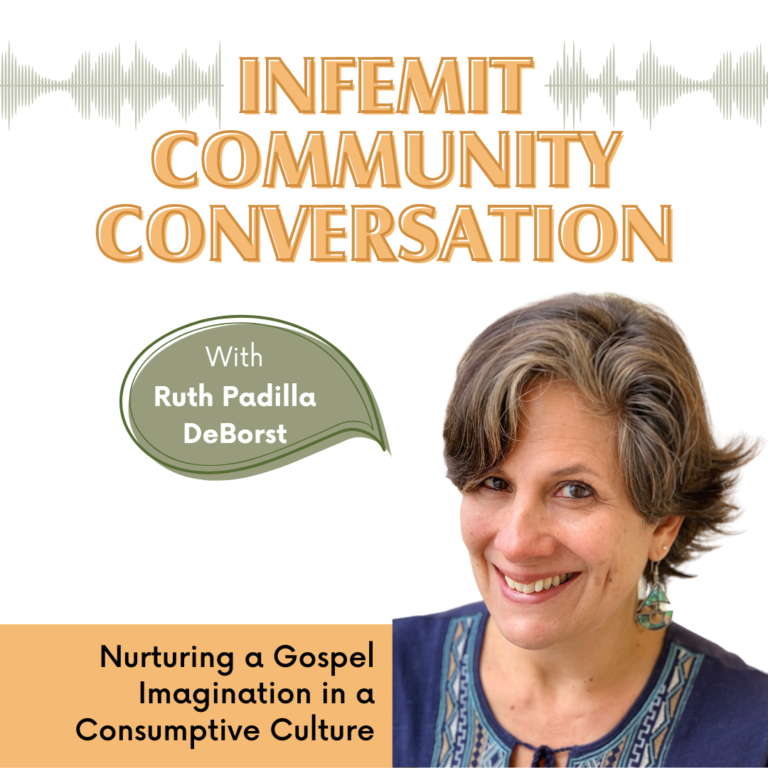
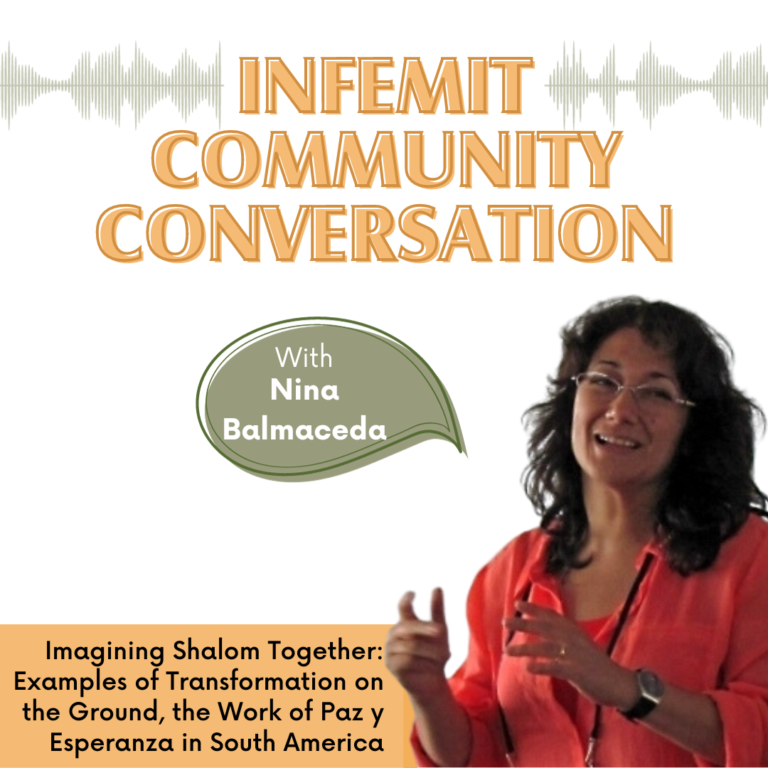
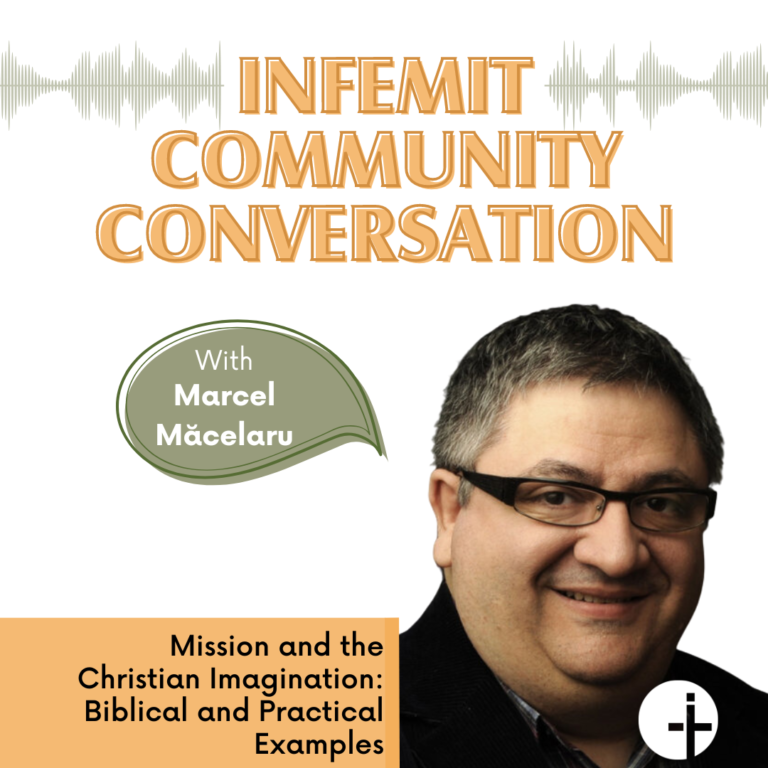
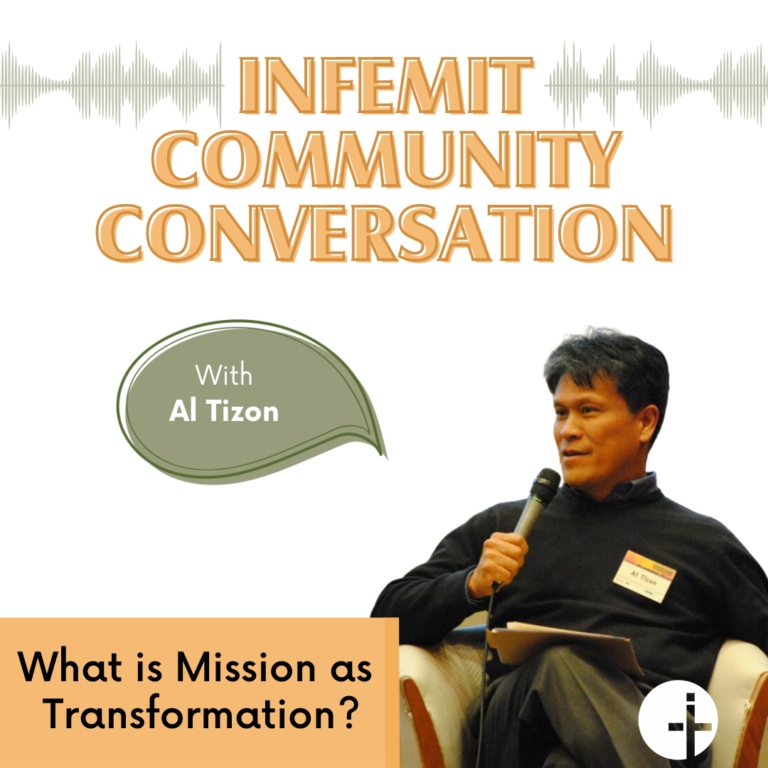
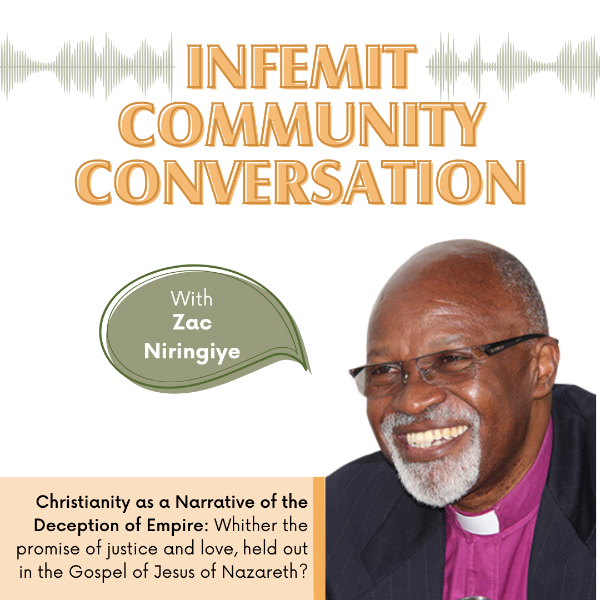
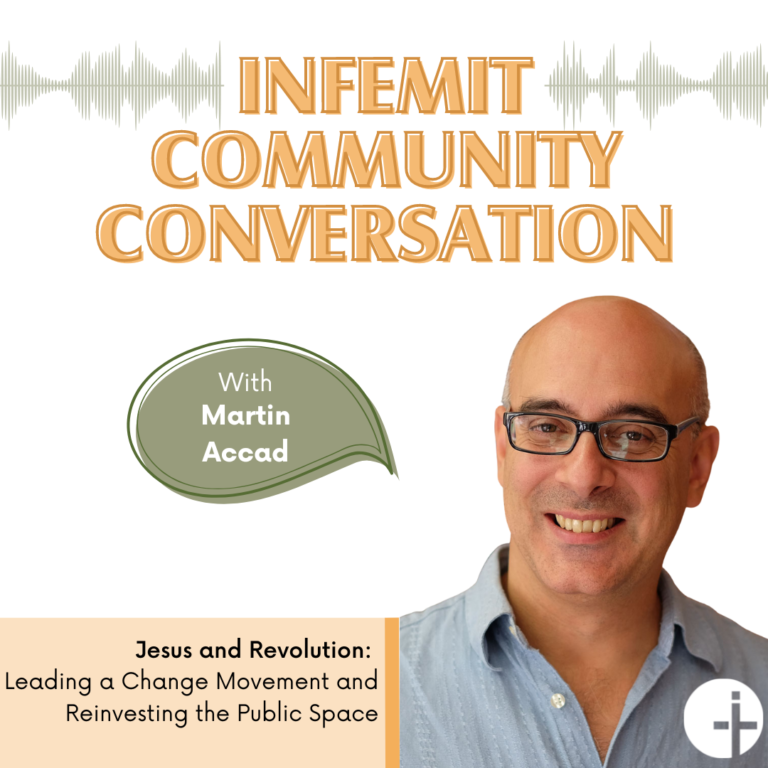
Leave a Reply